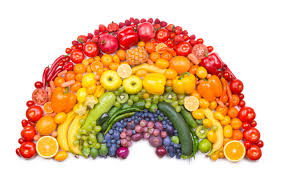By Marcey Klein BS, NC
Cancer is a multifaceted disease, there are many areas to look at in preventative care. One area is decreasing the toxicity we receive from our environment. Pesticides sprayed on our conventional foods, our yards, and that leach into our water, may get stored in our bodies and can cause hormone, cell, and gut disruption. Phthalates from conventional beauty products like nail polish, perfumes, and in plastics to make them more pliable, can cause hormone disruption. All of these can exert a damaging estrogenic effect in the body and can cause endocrine disruption because these chemical estrogens are stronger than our own estrogens, latching on to receptor sites meant for our own hormones. Breast cancer risk is increased with a higher level of estrogen, especially with these more aggressive synthetic versions. We can try to limit these damaging chemicals from getting in our bodies in the first place by avoiding produce with pesticides sprayed on them as much as possible. Eating organic is important, and especially with produce that absorbs pesticides more than others or has multiple pesticides sprayed on them. Here’s a list of produce to mostly buy organic: Peaches, apples, strawberries, grapes, cherries, nectarines, pears, raspberries, bell peppers, celery, spinach and lettuces, potatoes, tomatoes, garlic and more. You also may want to try to have organic milk, meat, and butter and fats since the pesticides will be concentrated in them along with any antibiotics and hormones that were given to the animal. We need proper gut health, meaning beneficial bacteria and prebiotics (aka soluble fiber). Having a healthy gut will help our bodies eliminate and not recirculate harmful estrogens. Refined sugars, chemical sweeteners , cigarettes, alcohol, and processed foods damage our good bacteria and raise our insulin levels and our cancer risk. Ground flax seeds, which are the richest source of plant lignans, help move out estrogens as they are a rich source of soluble fiber and antioxidants. Flax seed consumption is also correlated with reduced cancer risk in studies. I put a tablespoon of ground flax in my morning smoothie, but if one has hormonal issues or has high cancer risk, then two tablespoons would be the therapeutic dose. Chicory root is a great prebiotic, essential for having a healthy digestive system, along with jicama, artichoke, asparagus, and onion. Another factor that contributes to cancer is cellular damage due to heavy metals, oxidative stress, and lack of nutrients to repair this damage. I’m big on antioxidants, good nutrition, hydration, and detoxification. Getting phytonutrients from eating the rainbow is important, and taking a good multivitamin to fill in the gaps is essential. Vitamin D plays an important role in cancer prevention as does vitamin C with bioflavonoids, folate which is important for healthy cell replication, vitamin A to regulate cell death, all the minerals as they help with so many enzyme activities, and omega 3 oils for cell membrane health. Lycopene from cooked tomatoes is a great phytonutrient to prevent angiogenesis (blood supply) to cancer cells. Genistein from soy also aids us in this way, cutting off the blood supply to cancer cells. 10 grams per day, the amount in one cup of soy milk is enough for this benefit, and also to help the survival rate, and prevention of breast cancer coming back. Now, let’s get into the foods we can eat to help our fight against cancer. Cruciferous vegetables are at the top of my list. Especially in the sprouted form, they can be 100 times more potent than their counterparts. Sprouted broccoli is a great example. Some other cruciferous vegetables include cauliflower, Brussels sprouts, kale, cabbage, and bok choy. These vegetables contain sulfur, a very important nutrient needed for detoxification of estrogen, and helping to slow the development and spread of cancerous cells. We want to include colorful foods like carrots, squash, yams, and mangos to give us a dose of antioxidant rich beta carotene. Citrus fruits and bioflavonoids increase our level of vitamin C to protect and repair our cells. Garlic, eggs, and onions are high in detoxifying sulfurs. Shitake, maitake, and reishi mushrooms help to stimulate T cell growth, green tea helps with cancer cell death, sea vegetables contain iodine, a nutrient concentrated in the breast and thyroid tissue important for regulating cellular health and replication. Berries provide us with important antioxidants for cellular repair, and pineapple and papaya are high in important anti-inflammatory enzymes. Turmeric is a must since this helps fight cancer and tumors on so many different levels and is also good for our livers. Last but not least is eating a whole food, nutrient dense diet that can help our detoxification and rejuvenate our systems in the body. Take care, be well, and come into Wild Roots Market for any questions.


